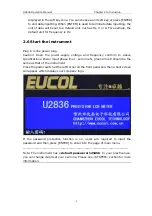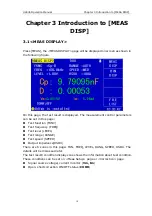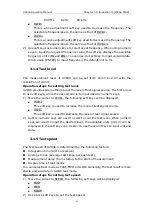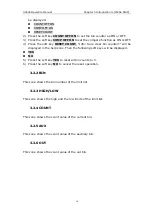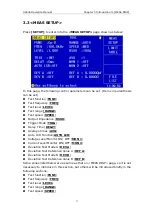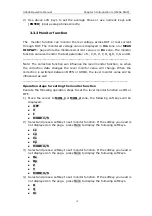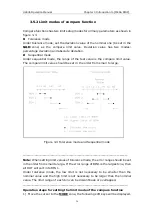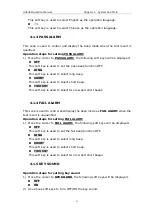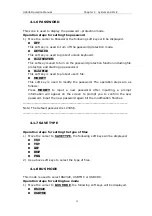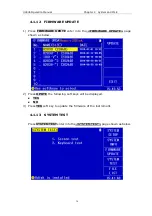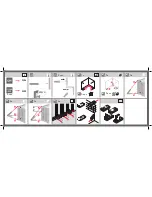
U2836 Operation Manual Chapter 3 Introduction to [MEAS DISP]
21
30
Ω
2)
Press
100
Ω
to select the output impedance as 100
Ω
. Press
30
Ω
to select the
output impedance as 30
Ω
.
3.3.6
Deviation test function
The deviation test function can make the deviation value (instead of real test
value) be directly displayed on the screen. The deviation value is equivalent to the
real test value subtracting the pre-set reference value. This function brings great
convenience to observe variations of component parameters with temperature,
frequency, bias. Bias test function can be used for primary or secondary
parameter or primary and secondary parameters meanwhile. The instrument
provides two deviation test modes as below:
Δ
ABS (Absolute Deviation mode)
The deviation currently displayed is the difference between the test value of
the DUT and the preset reference value. The formula of calculating
Δ
ABS is as
below:
Δ
ABS=X-Y
Where, X is the test value of DUT
Y is the preset reference value.
Δ
% (Percentage deviation mode)
The deviation currently displayed is the percentage of the difference between
the test value of DUT and the preset reference value divided by the reference
value. Its calculating formula is as below:
Δ
%=(X-Y)/Y*100[%]
Where, X is the test value of DUT.
Y is the preset reference value.
Operation steps for setting deviation test function
1)
Move the cursor to the
REF A
zone to input the reference value of the primary
parameter, the following soft key will be displayed.
MEAS
When the reference component is connected with the test terminal, you
should press
MEAS
. Then U2836 will test the reference component and the
test result will be automatically input as the value of
REF A
.
2)
Use
MEAS
or numeric keys to input the reference value of primary parameter.
3)
Move the cursor to the
REF B
to input the reference value of the secondary
parameter, the following soft key will be displayed.
MEAS
When the reference component is connected to the test terminal, you should
press
MEAS
. Then U2836 will test the reference component and the test
result will be automatically input as the value of
REF B
.
4)
Use MEAS or numeric keys to input the reference value of the secondary
parameter. If the reference values of primary and secondary parameters have
been set in steps 2), you can skip this step.



